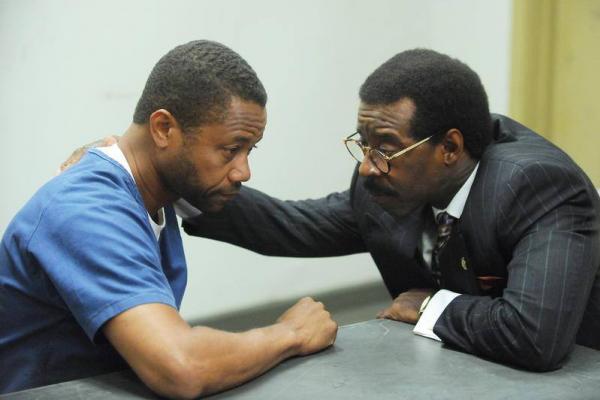I’m spellbound by the FX miniseries The People vs. O.J. Simpson: An American Crime Story. It’s exceptionally well cast and well made so far, and watching it has brought all my memories of that time flooding back. But the series is also doing something else for me — given the increased attention on police killings of people of color and the rise of the Black Lives Matter movement, The People is forcing me to interrogate my memories and opinions from 22 years ago and look at them through a new lens. What do I remember about that time? As a white boy, what opinions and perspectives about the case did I have then?
June 17, 1994. I was 12 years old when O.J. Simpson and the Los Angeles Police Department engaged in their fateful Bronco chase. At the time, my family was living in Geneva, Switzerland, but we were getting ready to move back to the U.S. after nearly six years away. As I tried to make sense of the images coming to us over Swiss TV — from a culture and country that I had interacted with only sporadically for the previous six years — I’ll always remember my mom watching the chase unfold and saying in a heartbroken tone to my dad, “It looks like O.J. did it.”
Over the ensuing months of our move back to the States and my often difficult integration into a mostly-white, middle class middle school in northern New Jersey, O.J.’s trial became a steady backdrop to everyday life. I didn’t watch much live coverage, but every development was covered in detail on the nightly news and in the newspapers.
There never seemed much doubt in the minds of my parents or my peers that O.J. was guilty. My specific memories of the trial are concentrated in flashes, images, and moments — the media obsession with Marcia Clark’s hairstyles, Kato taking the fifth, Mark Fuhrman being a really bad guy, “If it doesn’t fit, you must acquit.” But the moral I took away as a 7th grader was this: The U.S. justice system is fallible, and can be subverted if you have enough money and fame.
That lesson is still worth pondering today. What we discussed far less, however, were the complex racial issues in play.
More than 20 years later, watching the show is making me re-think a lot of my preteen assumptions. While I have not changed my mind on O.J.’s guilt or innocence, I understand, on a much deeper level (if still an academic one), that the criminal justice system in the United States is infected with structural racism. And that makes it much more difficult for people of color to get anything resembling fair treatment. And Los Angeles in the 1990s was ground zero in terms of awareness of the problem. So I can better understand now why a Los Angeles jury with nine black jurors would have members who had real personal experiences of unfair treatment at the hands of law enforcement and the courts, and could very easily have felt reasonable doubt about O.J.’s guilt given the quality of his defense.
It was and is widely believed — based in history and personal experiences of people of color — that a poor black man in O.J.’s situation would not have had the full and fair opportunity to defend himself that our Constitution is supposed to guarantee him. So O.J.’s ability to fight back against LA’s criminal justice system — because he was the rare black person who did have influence, power, and resources — could easily be seen as sympathetic to many people of color.
As a teenager, my mind only saw the unfairness of fame and money — that O.J.’s possession of both would exempt him from facing the justice that his victims deserved. What I see now is the colossal unfairness of the justice system itself — one that has led to so many other less publicized but equally unjust outcomes for people of color.
As a white man who has never experienced oppression in his life, I have the luxury of separating the particulars of O.J’s case from the larger structural racism of the criminal justice system. Sadly, I suspect that far too many others cannot say the same.
Seven of 10 installments of The People vs. O.J. Simpson have aired as of this writing. I’m eagerly awaiting the rest, and grateful for the opportunity to continue challenging the memories and assumptions of my childhood through the lens of the urgent and continuing struggle for racial justice. Never has a series about the past felt so urgently about our nation’s present and future.
Got something to say about what you're reading? We value your feedback!

